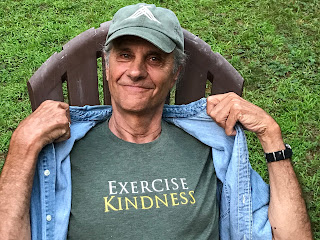How Do We Help Boys Develop Positive Masculine Traits?
By John Scardina
We live in a time where “toxic masculinity” is a buzzword in the media. The #MeToo movement, as well as high profile cases such as those involving Harvey Weinstein and Jeffrey Epstein, paint a picture of men as predators and abusers. Yes, there is a patriarchy in our culture – a predominance of white male privilege in our institutions of government and the economy – yet boys also suffer from role models and expectations that are based on power rather than community. How do we nurture the positive aspects of being male?
Feminism did a good job of creating more opportunities for women to move into all areas of society in addition to the prescribed roles of housewife. mother, and second-class citizen. Men also need the opportunity for new roles – active co-parent, compassionate listener, secondary breadwinner, mentor for youth, and engaged protector of home and family. Advances in the education and professional success of women are ongoing and substantial. Meanwhile, fewer men are succeeding in college and male mental health issues have risen dramatically.
SO – what is positive masculinity? The ability to:
Address disrespect.
Embrace equity of opportunity for all.
Encourage other men to express emotions freely.
Encourage compassion and kindness towards themselves and others.
Listen to experiences and validate feelings.
Check-in with male friends and loved ones.
Help the people you walk through life with on a day-to-day basis.
How do we raise boys who embrace positive masculinity?
Encourage all forms of play: from wrestling to playing with dolls. We are a species that learns from play and needs active and joyful engagement with others.
Point out examples of those who bend the old stereotypes and show men in roles that allow for the full expression of all emotions, vulnerability, and a use of physical force that is constructive rather than punitive (as in building a playground rather than physically fighting with or threatening a neighbor).
Hang around with men who are non-competitive and nurturing.
Address disrespect when you encounter it: model being an “upstander” rather than a “bystander” in front of your child.
Support team coaches for boys who stress skills development over winning, teamwork over star promotion, and compassionate correction over shaming and belittling.
Understand that gender exploration is a natural part of human development. Asking a boy to “act like a real man” may in fact create inner conflict with regard to feeling soft and vulnerable and affectionate toward others of all gender expressions.
Lovingly speak with the males in your life, offering support and “shoulder to shoulder” intimacy as you share activities and the usual “stupid life stuff” that make up our days.
This is a win-win proposition: boys and girls and children of all gender identities will all get a wider set of choices and the support of wise and loving adults.
John Scardina is the school psychologist at West Chester Friends School. He also served as Quaker in Residence at Friends Academy, school psychologist at Media-Providence Friends School and Goshen Friends School, and Dean of Students at Westtown School. In addition to his work in Friends schools, John also facilitates Alternatives to Violence Project (AVP) workshops in Sing Sing, New York State’s maximum security prison for men in Ossining NY.



Comments
Post a Comment